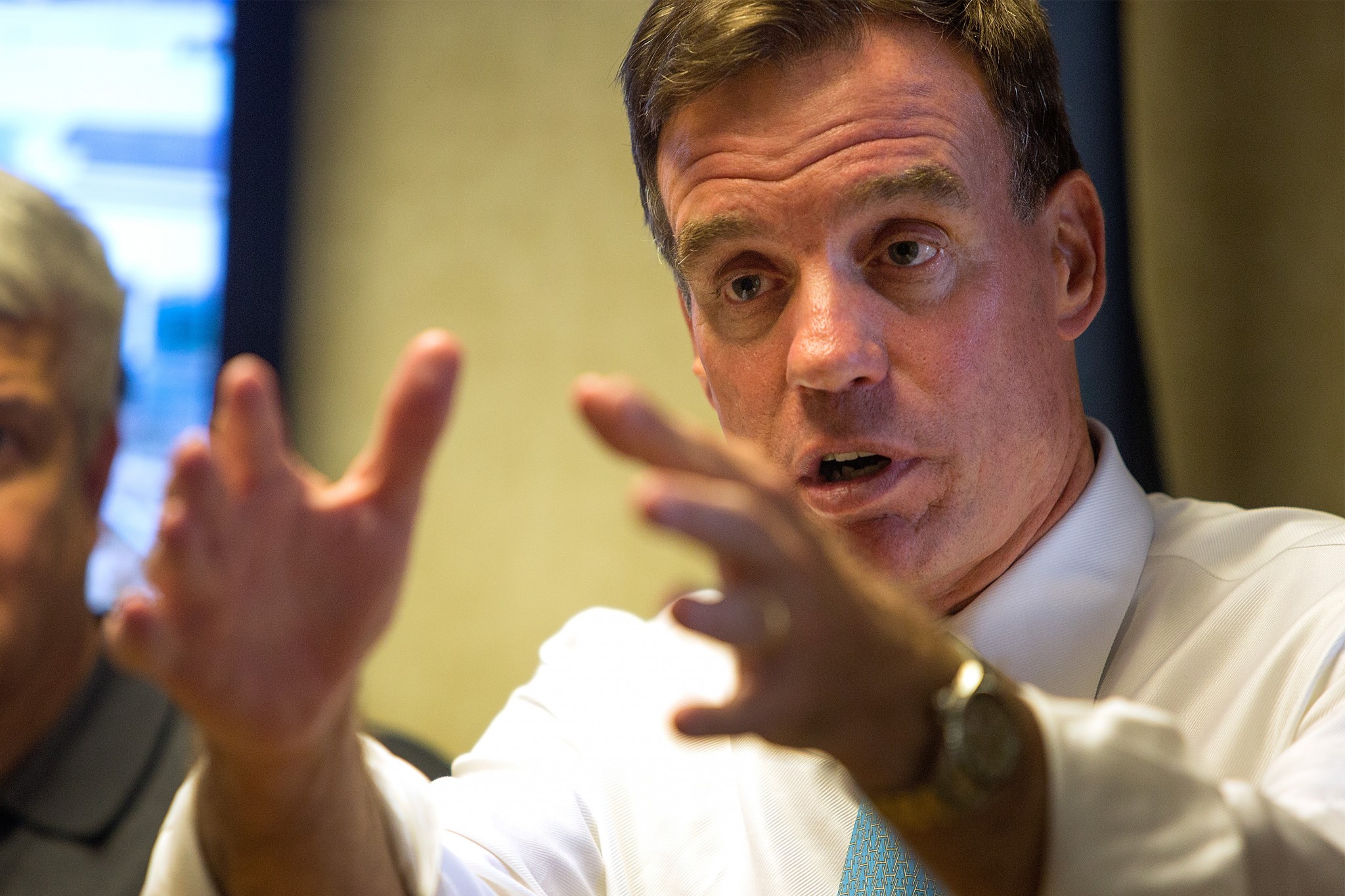In the News
By Bill Bartel
With less than a day remaining before the United States risks defaulting on its debts, Virginia's two senators said Tuesday they're not giving up hope that a deal can be struck to reopen government and raise the debt limit to pay its bills.

Photo by Leo Kim, Virginian-Pilot
But it will be very close, predicted U.S. Sen. Mark Warner.
"We're going to be right up against the edge of Thursday. And that is assuming everything goes well," Warner said during a conference call with reporters. "This time, the wolf may really be at the door."
In the meantime, the two-week shutdown and threat of a default are costing taxpayers billions of dollars and sparking higher interest rates, Warner said.
The effects of delayed or lost wages and government contracts is particularly acute in Virginia, where a third of the economy is connected to the federal government.
Residents of the commonwealth "are taking this on the chin more than any other state," he said.
Warner said there are reports of investors unloading short-term Treasury notes as time ticks away. The cost of money is going up, he said.
Even if the crisis is averted, Americans can expect "higher mortgage payments, higher student loan payments, higher car payments - anything that's got an interest payment attached to it, we're going to be paying that cost," said Warner, who made a fortune as a venture capitalist before entering politics.
Tuesday started with Senate leaders of both parties working on a plan to reopen the government until at least mid-January and to extend the nation's debt limit so it could borrow at least until early February. Under the proposal, House and Senate budget negotiators would have until mid-December to agree on a long-term budget for the rest of 2014. Kaine and Warner, both Democrats, supported the compromise.
But the plan lost ground because it didn't have sufficient support among House Republicans, who wanted it to include provisions to significantly slow or change the new health care law. President Barack Obama and Democrats, who control the Senate, have said they will not negotiate major changes to the health care law in order to end the shutdown or raise the debt limit.
Kaine acknowledged that even if a compromise is reached this week, Congress will soon face a new set of deadlines to avoid yet another shutdown or default threat.
Lawmakers won't want to endure the public's wrath a second time, he said.
"I would hope it would be different because Congress would have been embarrassed by the last few weeks," Kaine said. "That people were hurt needlessly. Communities were hurt needlessly. The economy is suffering needlessly. Our prestige abroad has suffered needlessly."
Even so, Kaine said, there's no guarantee there won't be another shutdown.
"I don't know what the Las Vegas odds would be that we would get it right, if we got another chance," Kaine said. "But we have to get it right."
In the meantime, U.S. Rep. Scott Rigell, R-Virginia Beach, said he's pinning his hopes on House Speaker John Boehner's promise - repeated Tuesday - that he would not let the government default.
Rigell favors a short-term budget deal to get the government running again. He doesn't like the health care law but doesn't insist changes to it be tied to a budget compromise.
If a core of Republican House members, supported by the small-government Tea Party movement, continue to oppose a compromise, Boehner would likely have to rely on House Democrats and non-Tea Party Republicans to pass a compromise bill to end the current crisis. Doing so could jeopardize his position as House speaker.
"That's his rip cord. It's always with him. He knows it," Rigell said. "It's a really tough situation."